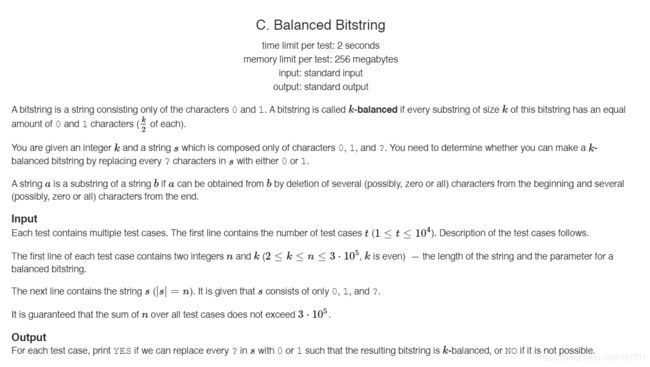- Java 运行时常量池笔记(详细版
小猫猫猫◍˃ᵕ˂◍
java笔记python
Java运行时常量池笔记(详细版)Java的运行时常量池(RuntimeConstantPool)是JVM方法区的一部分,用于存储编译期生成的字面量和符号引用。它是Java类文件常量池的运行时表示,具有动态性和共享性。运行时常量池的核心概念1.什么是运行时常量池?运行时常量池是JVM方法区的一部分,存储类文件中常量池的内容。它包含:字面量:如字符串、整数、浮点数等。符号引用:如类名、方法名、字段名
- B4158 [BCSP-X 2024 小学高年级组] 质数补全
wwjjjww
算法数据结构
题目描述Alice在纸条上写了一个质数,第二天再看时发现有些地方污损看不清了。在大于1的自然数中,除了1和它本身以外不再有其他因数的自然数称为质数请你帮助Alice补全这个质数,若有多解输出数值最小的,若无解输出−1。例如纸条上的数字为1∗(∗代表看不清的地方),那么这个质数有可能为11,13,17,19,其中最小的为11。输入格式第一行1个整数t,代表有t组数据。接下来t行,每行1个字符串s代表
- 马斯克的Grok-3:技术突破与行业冲击的深度解析
♢.*
马斯克人工智能大模型xAIGrok3
一、技术架构与核心突破超大规模算力集群Grok-3基于xAI自研的Colossus超级计算机训练完成,搭载20万块英伟达H100GPU,累计消耗2亿GPU小时,算力投入是前代Grok-2的10倍48。这一规模远超行业平均水平,例如中国团队DeepSeek-V3的算力消耗仅为Grok-3的1/2634。技术挑战:团队在122天内完成首期10万块GPU部署,克服了散热、电力供应等工程难题1。思维链推理
- 100道计算机网络面试八股文(答案、分析和深入提问)整理
守护海洋的猫
计算机网络面试职场和发展pythondjango
1.说一说POST与GET有哪些区别回答在计算机网络中,POST和GET是HTTP协议中两种主要的请求方法,它们各自具有不同的特性和用途。下面是二者的主要区别:1.数据传输方式GET:数据通过URL传递,参数以查询字符串的形式附加在URL后面。示例:http://example.com/api?name=value&age=30POST:数据包含在HTTP请求的主体部分,数据不会显示在URL中。示
- 【Python 学习 / 7】模块与文件操作
卜及中
Python基础python学习数据库
文章目录前言一、导入模块1.导入整个模块2.导入模块中的特定函数3.给模块或函数起别名二、常用模块1.`math`模块2.`random`模块3.`os`模块4.`sys`模块三、文件处理1.打开文件2.读取文件3.写入文件4.关闭文件5.使用`with`语句管理文件四、日期时间1.`datetime`模块获取当前日期和时间创建日期和时间对象格式化日期和时间解析字符串为日期对象2.`time`模块
- 网页实现打字机效果
充气大锤
前端组件javascript算法开发语言vue.js
在DS中,AI与用户的对话呈现的是一个打字机效果,那么我们在网页中如何实现对话框的打字机效果呢思路:进行字符串拼接,将要拼接的字符串逐字拼接到目标字符串上代码/***实现打字机效果*@param{String}str要打印的字符串*@param{Array}arr聊天数据中的数组*@param{Number}id需要push字符串的下标*@param{String}msg_name数组中的对象名*
- 发送http请求
rust
发起GET请求usereqwest::Client;usetokio;#[tokio::main]asyncfnmain()->Result>{//创建reqwest客户端letclient=Client::new();//发起GET请求letresponse=client.get("https://jsonplaceholder.typicode.com/posts/1").send().awa
- flutter pigeon gomobile 插件中使用go工具类
yujunlong3919
fluttergolangswiftkotlin
文章目录为什么flutter要用go写工具类1.下载pigeon插件模版2.编写go代码3.生成greeting.aar,Greeting.xcframework4.ios5.android6.dart中使用为什么flutter要用go写工具类在Flutter应用中,有些场景涉及到大量的计算,比如复杂的加密算法、数据压缩/解压缩或者图形处理中的数学计算等1.下载pigeon插件模版base_plu
- Python入门笔记
「已注销」
计算机
文章目录第0周课程导学第1周Python基本语法元素保留字数据类型语句与函数输入函数第2周Python基本图形绘制turtle库绝对坐标海龟坐标turtle角度坐标体系RGB色彩体系画笔控制函数运动控制函数方向控制函数循环语句第3周基本数据类型整型浮点数科学计数法复数类型数值运算操作符二元操作符有对应的增强赋值操作符数值运算函数字符串类型的表示字符串切片字符串类型及操作字符串类型格式化time库时
- 【产品小白】产品思维与技术思维的区别
百事不可口y
产品经理的一步一步产品经理用户运营内容运营学习人工智能大数据新媒体运营
一、两种思维的本质差异与互补性维度产品思维技术思维核心关注点用户价值(痛点/爽点)、商业目标(盈利/增长)技术实现(架构/性能)、系统稳定性(可用性/扩展性)决策依据用户行为数据、市场趋势、ROI模型技术复杂度、开发成本、技术债评估问题解决路径从场景出发,构建业务闭环(如“用户如何完成支付?”)从实现出发,拆解技术模块(如“支付接口如何鉴权?”)风险意识担心需求伪命题(无人使用)担忧系统崩溃(高并
- LQB---基础练习---十六进制转八进制
「已注销」
#LQBLQB
试题基础练习十六进制转八进制资源限制内存限制:512.0MBC/C++时间限制:1.0sJava时间限制:3.0sPython时间限制:5.0s问题描述给定n个十六进制正整数,输出它们对应的八进制数。输入格式输入的第一行为一个正整数n(1<=n<=10)。接下来n行,每行一个由09、大写字母AF组成的字符串,表示要转换的十六进制正整数,每个十六进制数长度不超过100000。输出格式输出n行,每行为
- 机器学习·文本数据读写处理
AAA顶置摸鱼
python深度学习机器学习人工智能数据处理
前言在自然语言处理的第一步,需要面对的是各种各样以不同形式表现的文本数据,比如,txt、Excel中的表格数据,还有无法直接打开的pkl文件等。针对这些不同类型的数据,可以基于Python中的基本功能函数或者调用某些库进行读写以及作一些基本的处理。一、文本数据读写方法1.读写TXT文件读取方法:read():读取整个文件,返回字符串。readline():逐行读取,返回字符串。readlines(
- 【北上广深杭大厂编程面试题】C++篇...这里介绍new、delete、malloc free之间的关系?
努力毕业的小土博^_^
计算机基础知识和编程c++java面试开发语言编程
【北上广深杭大厂编程面试题】C++篇…这里介绍new、delete、mallocfree之间的关系?【北上广深杭大厂编程面试题】C++篇…这里介绍new、delete、mallocfree之间的关系?文章目录【北上广深杭大厂编程面试题】C++篇...这里介绍new、delete、mallocfree之间的关系?前言1.`malloc`和`free``malloc`(MemoryAllocation
- ECharts 柱状图X轴或Y轴空值无数据不占位不渲染不展示
大橙子-
echarts前端javascript
效果查看:将option复制到echarts解析垂直方向://垂直方向代码示例option={legend:{//这里data省略echarts会自动匹配,也可自行配置},xAxis:[//关键点:多个X轴进行匹配{type:'category',position:'bottom',data:['2021','']//空字符串则不会展示},{type:'category',position:'bo
- Python 小练习 —— 统计字符串各类字符数量
奶香臭豆腐
python开发语言学习
需求允许用户不断输入一个字符串。写一个函数负责统计该字符串中的字符、数字、空格、特殊字符的个数。代码如下:#统计字符、数字、特殊字符的个数fromtypingimportTuple#使用类型注释所需的库#定义函数,用到了类型注释。defcount_characters(msg:str)->Tuple[int,int,int,int]:digit_count=0#数字计数器alpha_count=0
- 正则表达式regex
GotoMeiben
正则表达式
工具网站:RegExr:Learn,Build,&TestRegEx正则表达式(RegularExpression,Regex)是一种强大的字符串匹配工具,广泛用于文本搜索、数据处理和输入验证等场景。无论是Python、Java、JavaScript还是Shell脚本,Regex都是不可或缺的技能。本文将深入介绍正则表达式的各种用法,包括:基本匹配(字母、数字)特殊符号^$\b量词{}*+?字符类
- vue中nextTick函数和react类似实现
向画
vue.jsreact.js前端
Vue3基本用法:import{nextTick}from'vue';//全局调用nextTick(()=>{//在下一个DOM更新循环后执行的代码});//在组件内部调用setup(){asyncfunctionhandleUpdate(){//修改数据...awaitnextTick();//在数据引发的DOM更新完成后执行的代码}}nextTick函数现在作为vue包的一个导出成员,需要显式
- 力扣hot100——找到字符串中的所有字母异位词
01_
leetcode算法找到字符串中的所有字母异位词hot100
给定两个字符串s和p,找到s中所有p的异位词的子串,返回这些子串的起始索引。不考虑答案输出的顺序。解法思路:1.//判断字符相等,其实就是给定一个定长的窗口去滑动查找子串,为了便于判断将p与窗口中的子串进行排序,如果相等则是//将窗口的左边界加入这种解法会有时间复杂度超标的问题吗,但是这个思路也是一种不错的解法2.本题维护长为n的子串s的每种字母的出现次数。如果s的每种字母的出现次数,和p的每种字
- 深入理解Java的集合框架
一碗黄焖鸡三碗米饭
java
深入理解Java的集合框架Java集合框架(JavaCollectionsFramework,简称JCF)是Java语言中最常用的API之一,它为开发者提供了强大且灵活的数据结构支持。集合框架通过一系列的接口和实现类,帮助我们管理、存储和操作数据。Java集合框架包括常见的List、Set、Map等接口及其具体实现类,合理选择适当的集合类型,对于程序性能和代码可维护性至关重要。本文将深入解析Jav
- 2024年03月CCF-GESP编程能力等级认证Python编程四级真题解析
码农StayUp
pythonCCFGESP青少年编程
本文收录于专栏《Python等级认证CCF-GESP真题解析》,专栏总目录:点这里,订阅后可阅读专栏内所有文章。一、单选题(共15题,共30分)第1题小杨的父母最近刚刚给他买了一块华为手表,他说手表上跑的是鸿蒙,这个鸿蒙是.()A.小程序B.计时器C.操作系统D.神话人物答案:C本题属于考察计算机基础知识。鸿蒙是操作系统,操作系统是管理计算机硬件与软件资源的程序,同时也是计算机系统的内核与基石。它
- 02.19 构造函数
Unique_yt
c++算法开发语言
1.思维导图2.封装一个mystring类,拥有私有成员:char*pintlen需要让以下代码编译通过,并实现对应功能:mystringstr="hello";mystringptr;ptr.copy(str);ptr.append(str);ptr.show();输出ptr代表的字符串ptr.compare(str);比较ptr和str是否一样ptr.swap(str);交换ptr和str的内
- c++中的string、vector、list、stack、set、map等常用STL容器总结
子春_贰叁
C++c++stl
文章目录string类vectorliststackqueuepriority_queue(优先级队列)deque(双端队列)setmultisetmapunordered_mapstring类string类简介:1.string类是表示字符串的字符串类2.string在底层实际是:basic_string模板类的别名,typedefbasic_stringstring3.不能操作多字节或者变长字
- 力扣刷题Day2
RAN_PAND
leetcode算法数据结构c++
389.找不同题目:给定两个字符串s和t,它们只包含小写字母。字符串t由字符串s随机重排,然后在随机位置添加一个字母。请找出在t中被添加的字母。示例1:输入:s="abcd",t="abcde"输出:"e"解释:'e'是那个被添加的字母。示例2:输入:s="",t="y"输出:"y"提示:0#includeusingnamespacestd;classSolution{public:charfin
- Python学习笔记 - Python数据类型
yunfan188
#Python学习笔记PythonPython数据类型
前言在Python语言中,所有的数据类型都是类,每一个变量都是类的“实例”。没有基本数据类型的概念,所以整数、浮点数和字符串也都是类。Python有6种标准数据类型:数字、字符串、列表、元组、集合和字典,而列表、元组、集合和字典可以保存多项数据,它们每一个都是一种数据结构,因此可以称这四种为“数据结构”类型。本文我们主要介绍数字和字符串类型。一、数字类型Python数字类型有4种:整数类型、浮点数
- 文章发布助手怎么发布
人工智能前端
怎么发布加粗发斜着发中划线段落引用第一步第二部第一步第二部百度privatestaticfinallongserialVersionUID=2488730025177676962L;column1column2column3content1content2content3
- 怎么把list中的数据选出其中一条放在第一位 java
隔壁蜡笔
listjavawindows数据结构开发语言
在Java中将List中的特定数据移至首位在Java开发中,操作集合类是频繁且基本的需求。例如,假设我们有一个包含多个元素的列表,需要将其中的某一特定元素移动到列表的第一位。这种需求在许多场景中都很常见,例如在用户界面排序、任务优先级调整等。本文将通过示例代码和图示化流程来说明如何实现这一功能。问题描述设想我们有一个包含多个字符串的列表,我们希望将某个特定的字符串(如果存在)移动到列表的第一位。比
- List获取指定位置元素
mini宝儿
arraylist
ArrayList中怎么获取指定第几个元素,例如获取第5个元素,可以通过list.get(4)得到。源码如下:publicclassArrayListextendsAbstractList implementsList,RandomAccess,Cloneable,java.io.Serializable{ privatestaticfinallongserialVersionUID=8683
- CCF-CSP真题202206-归一化处理/寻宝大冒险
chaser&upper
一研为定Algorithm算法c++
CCF-CSP真题202206归一化处理寻宝大冒险Rederence归一化处理数学题:直接计算平均值、方差、按公式计算即可!7-42930-22126541000-0.74855103790736130.04504284674812264-0.7378629047806881-0.7966476369773906-0.70579850540066861.00964686143037751.9341
- 结构体与位段
bbppooi
c语言学习c语言数据结构
结构体类型的声明结构是⼀些值的集合,这些值称为成员变量。结构的每个成员可以是不同类型的变量结构的声明structtag{member-list;}variable-list;例子structbook{chartitle[MAXTITL];//字符串类型的titilecharauthor[MAXAUTL];//字符串类型的authorfloatvalue;//浮点型的value};关于其声明的位置,
- 最少前缀操作问题--感受不到动态规划,怎么办怎么办
幼儿园口算大王
算法java动态规划
题目:标签:动态规划(应该是双指针的,不理解)小U和小R有两个字符串,分别是S和T,现在小U需要通过对S进行若干次操作,使其变成T的一个前缀。操作可以是修改S的某一个字符,或者删除S末尾的字符。现在你需要帮助小U计算出,最少需要多少次操作才能让S变成T的前缀。测试样例样例1:输入:S="aba",T="abb"输出:1样例2:输入:S="abcd",T="efg"输出:4样例3:输入:S="xyz
- java线程Thread和Runnable区别和联系
zx_code
javajvmthread多线程Runnable
我们都晓得java实现线程2种方式,一个是继承Thread,另一个是实现Runnable。
模拟窗口买票,第一例子继承thread,代码如下
package thread;
public class ThreadTest {
public static void main(String[] args) {
Thread1 t1 = new Thread1(
- 【转】JSON与XML的区别比较
丁_新
jsonxml
1.定义介绍
(1).XML定义
扩展标记语言 (Extensible Markup Language, XML) ,用于标记电子文件使其具有结构性的标记语言,可以用来标记数据、定义数据类型,是一种允许用户对自己的标记语言进行定义的源语言。 XML使用DTD(document type definition)文档类型定义来组织数据;格式统一,跨平台和语言,早已成为业界公认的标准。
XML是标
- c++ 实现五种基础的排序算法
CrazyMizzz
C++c算法
#include<iostream>
using namespace std;
//辅助函数,交换两数之值
template<class T>
void mySwap(T &x, T &y){
T temp = x;
x = y;
y = temp;
}
const int size = 10;
//一、用直接插入排
- 我的软件
麦田的设计者
我的软件音乐类娱乐放松
这是我写的一款app软件,耗时三个月,是一个根据央视节目开门大吉改变的,提供音调,猜歌曲名。1、手机拥有者在android手机市场下载本APP,同意权限,安装到手机上。2、游客初次进入时会有引导页面提醒用户注册。(同时软件自动播放背景音乐)。3、用户登录到主页后,会有五个模块。a、点击不胫而走,用户得到开门大吉首页部分新闻,点击进入有新闻详情。b、
- linux awk命令详解
被触发
linux awk
awk是行处理器: 相比较屏幕处理的优点,在处理庞大文件时不会出现内存溢出或是处理缓慢的问题,通常用来格式化文本信息
awk处理过程: 依次对每一行进行处理,然后输出
awk命令形式:
awk [-F|-f|-v] ‘BEGIN{} //{command1; command2} END{}’ file
[-F|-f|-v]大参数,-F指定分隔符,-f调用脚本,-v定义变量 var=val
- 各种语言比较
_wy_
编程语言
Java Ruby PHP 擅长领域
- oracle 中数据类型为clob的编辑
知了ing
oracle clob
public void updateKpiStatus(String kpiStatus,String taskId){
Connection dbc=null;
Statement stmt=null;
PreparedStatement ps=null;
try {
dbc = new DBConn().getNewConnection();
//stmt = db
- 分布式服务框架 Zookeeper -- 管理分布式环境中的数据
矮蛋蛋
zookeeper
原文地址:
http://www.ibm.com/developerworks/cn/opensource/os-cn-zookeeper/
安装和配置详解
本文介绍的 Zookeeper 是以 3.2.2 这个稳定版本为基础,最新的版本可以通过官网 http://hadoop.apache.org/zookeeper/来获取,Zookeeper 的安装非常简单,下面将从单机模式和集群模式两
- tomcat数据源
alafqq
tomcat
数据库
JNDI(Java Naming and Directory Interface,Java命名和目录接口)是一组在Java应用中访问命名和目录服务的API。
没有使用JNDI时我用要这样连接数据库:
03. Class.forName("com.mysql.jdbc.Driver");
04. conn
- 遍历的方法
百合不是茶
遍历
遍历
在java的泛
- linux查看硬件信息的命令
bijian1013
linux
linux查看硬件信息的命令
一.查看CPU:
cat /proc/cpuinfo
二.查看内存:
free
三.查看硬盘:
df
linux下查看硬件信息
1、lspci 列出所有PCI 设备;
lspci - list all PCI devices:列出机器中的PCI设备(声卡、显卡、Modem、网卡、USB、主板集成设备也能
- java常见的ClassNotFoundException
bijian1013
java
1.java.lang.ClassNotFoundException: org.apache.commons.logging.LogFactory 添加包common-logging.jar2.java.lang.ClassNotFoundException: javax.transaction.Synchronization
- 【Gson五】日期对象的序列化和反序列化
bit1129
反序列化
对日期类型的数据进行序列化和反序列化时,需要考虑如下问题:
1. 序列化时,Date对象序列化的字符串日期格式如何
2. 反序列化时,把日期字符串序列化为Date对象,也需要考虑日期格式问题
3. Date A -> str -> Date B,A和B对象是否equals
默认序列化和反序列化
import com
- 【Spark八十六】Spark Streaming之DStream vs. InputDStream
bit1129
Stream
1. DStream的类说明文档:
/**
* A Discretized Stream (DStream), the basic abstraction in Spark Streaming, is a continuous
* sequence of RDDs (of the same type) representing a continuous st
- 通过nginx获取header信息
ronin47
nginx header
1. 提取整个的Cookies内容到一个变量,然后可以在需要时引用,比如记录到日志里面,
if ( $http_cookie ~* "(.*)$") {
set $all_cookie $1;
}
变量$all_cookie就获得了cookie的值,可以用于运算了
- java-65.输入数字n,按顺序输出从1最大的n位10进制数。比如输入3,则输出1、2、3一直到最大的3位数即999
bylijinnan
java
参考了网上的http://blog.csdn.net/peasking_dd/article/details/6342984
写了个java版的:
public class Print_1_To_NDigit {
/**
* Q65.输入数字n,按顺序输出从1最大的n位10进制数。比如输入3,则输出1、2、3一直到最大的3位数即999
* 1.使用字符串
- Netty源码学习-ReplayingDecoder
bylijinnan
javanetty
ReplayingDecoder是FrameDecoder的子类,不熟悉FrameDecoder的,可以先看看
http://bylijinnan.iteye.com/blog/1982618
API说,ReplayingDecoder简化了操作,比如:
FrameDecoder在decode时,需要判断数据是否接收完全:
public class IntegerH
- js特殊字符过滤
cngolon
js特殊字符js特殊字符过滤
1.js中用正则表达式 过滤特殊字符, 校验所有输入域是否含有特殊符号function stripscript(s) { var pattern = new RegExp("[`~!@#$^&*()=|{}':;',\\[\\].<>/?~!@#¥……&*()——|{}【】‘;:”“'。,、?]"
- hibernate使用sql查询
ctrain
Hibernate
import java.util.Iterator;
import java.util.List;
import java.util.Map;
import org.hibernate.Hibernate;
import org.hibernate.SQLQuery;
import org.hibernate.Session;
import org.hibernate.Transa
- linux shell脚本中切换用户执行命令方法
daizj
linuxshell命令切换用户
经常在写shell脚本时,会碰到要以另外一个用户来执行相关命令,其方法简单记下:
1、执行单个命令:su - user -c "command"
如:下面命令是以test用户在/data目录下创建test123目录
[root@slave19 /data]# su - test -c "mkdir /data/test123"
- 好的代码里只要一个 return 语句
dcj3sjt126com
return
别再这样写了:public boolean foo() { if (true) { return true; } else { return false;
- Android动画效果学习
dcj3sjt126com
android
1、透明动画效果
方法一:代码实现
public View onCreateView(LayoutInflater inflater, ViewGroup container, Bundle savedInstanceState)
{
View rootView = inflater.inflate(R.layout.fragment_main, container, fals
- linux复习笔记之bash shell (4)管道命令
eksliang
linux管道命令汇总linux管道命令linux常用管道命令
转载请出自出处:
http://eksliang.iteye.com/blog/2105461
bash命令执行的完毕以后,通常这个命令都会有返回结果,怎么对这个返回的结果做一些操作呢?那就得用管道命令‘|’。
上面那段话,简单说了下管道命令的作用,那什么事管道命令呢?
答:非常的经典的一句话,记住了,何为管
- Android系统中自定义按键的短按、双击、长按事件
gqdy365
android
在项目中碰到这样的问题:
由于系统中的按键在底层做了重新定义或者新增了按键,此时需要在APP层对按键事件(keyevent)做分解处理,模拟Android系统做法,把keyevent分解成:
1、单击事件:就是普通key的单击;
2、双击事件:500ms内同一按键单击两次;
3、长按事件:同一按键长按超过1000ms(系统中长按事件为500ms);
4、组合按键:两个以上按键同时按住;
- asp.net获取站点根目录下子目录的名称
hvt
.netC#asp.nethovertreeWeb Forms
使用Visual Studio建立一个.aspx文件(Web Forms),例如hovertree.aspx,在页面上加入一个ListBox代码如下:
<asp:ListBox runat="server" ID="lbKeleyiFolder" />
那么在页面上显示根目录子文件夹的代码如下:
string[] m_sub
- Eclipse程序员要掌握的常用快捷键
justjavac
javaeclipse快捷键ide
判断一个人的编程水平,就看他用键盘多,还是鼠标多。用键盘一是为了输入代码(当然了,也包括注释),再有就是熟练使用快捷键。 曾有人在豆瓣评
《卓有成效的程序员》:“人有多大懒,才有多大闲”。之前我整理了一个
程序员图书列表,目的也就是通过读书,让程序员变懒。 写道 程序员作为特殊的群体,有的人可以这么懒,懒到事情都交给机器去做,而有的人又可
- c++编程随记
lx.asymmetric
C++笔记
为了字体更好看,改变了格式……
&&运算符:
#include<iostream>
using namespace std;
int main(){
int a=-1,b=4,k;
k=(++a<0)&&!(b--
- linux标准IO缓冲机制研究
音频数据
linux
一、什么是缓存I/O(Buffered I/O)缓存I/O又被称作标准I/O,大多数文件系统默认I/O操作都是缓存I/O。在Linux的缓存I/O机制中,操作系统会将I/O的数据缓存在文件系统的页缓存(page cache)中,也就是说,数据会先被拷贝到操作系统内核的缓冲区中,然后才会从操作系统内核的缓冲区拷贝到应用程序的地址空间。1.缓存I/O有以下优点:A.缓存I/O使用了操作系统内核缓冲区,
- 随想 生活
暗黑小菠萝
生活
其实账户之前就申请了,但是决定要自己更新一些东西看也是最近。从毕业到现在已经一年了。没有进步是假的,但是有多大的进步可能只有我自己知道。
毕业的时候班里12个女生,真正最后做到软件开发的只要两个包括我,PS:我不是说测试不好。当时因为考研完全放弃找工作,考研失败,我想这只是我的借口。那个时候才想到为什么大学的时候不能好好的学习技术,增强自己的实战能力,以至于后来找工作比较费劲。我
- 我认为POJO是一个错误的概念
windshome
javaPOJO编程J2EE设计
这篇内容其实没有经过太多的深思熟虑,只是个人一时的感觉。从个人风格上来讲,我倾向简单质朴的设计开发理念;从方法论上,我更加倾向自顶向下的设计;从做事情的目标上来看,我追求质量优先,更愿意使用较为保守和稳妥的理念和方法。
&
